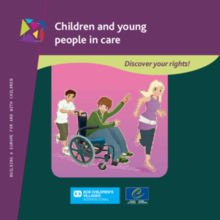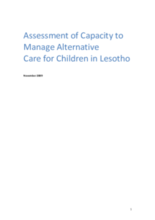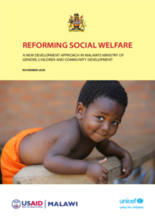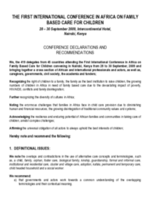Displaying 13441 - 13450 of 14579
This quasi-experimental study tested a model of adult mentorship and support to improve psychosocial outcomes among youth-headed households in a rural area of Rwanda.
This booklet is designed for children and young people in care to explain how alternative care works, what their rights are as young people in care and whether these rights are being respected.
The alternative care assessment examines the current social welfare systems and processes rather than on the specific quality of care in the various children’s homes as standards have already been developed.
Despite its importance to the poorest in society, the social welfare sector in Malawi has not been performing well. Recognising this, the Principal Secretary (PS) in the Ministry of Gender, Children and Community Development (MoGCCD) requested support from United Nations Children’s Fund (UNICEF) and United States Agency for International Development (USAID), who have taken a new approach: supporting the Government of Malawi (GoM) to build a better social welfare system starting at the top, within the Ministry.
This document outlines EveryChild’s approach to the growing problem of children without parental care by defining key concepts, analysing the nature and extent of the problem, exploring factors which place children at risk of losing parental care, and examining the impact of a loss of parental care on children’s rights.
Programme of presentations and activities
Collection of abstracts from conference presentations
Summary of conference delegates' declarations and recommendations
This paper examines the efficacy of Independent Living (IL) services in the United States in preparing foster youth to live “independently”, and calls into question the appropriateness of an “independence” goal for youth aging out of foster care.
For this study, surveys were employed to explore the experiences of children in care and their carers about traditional fostering.






